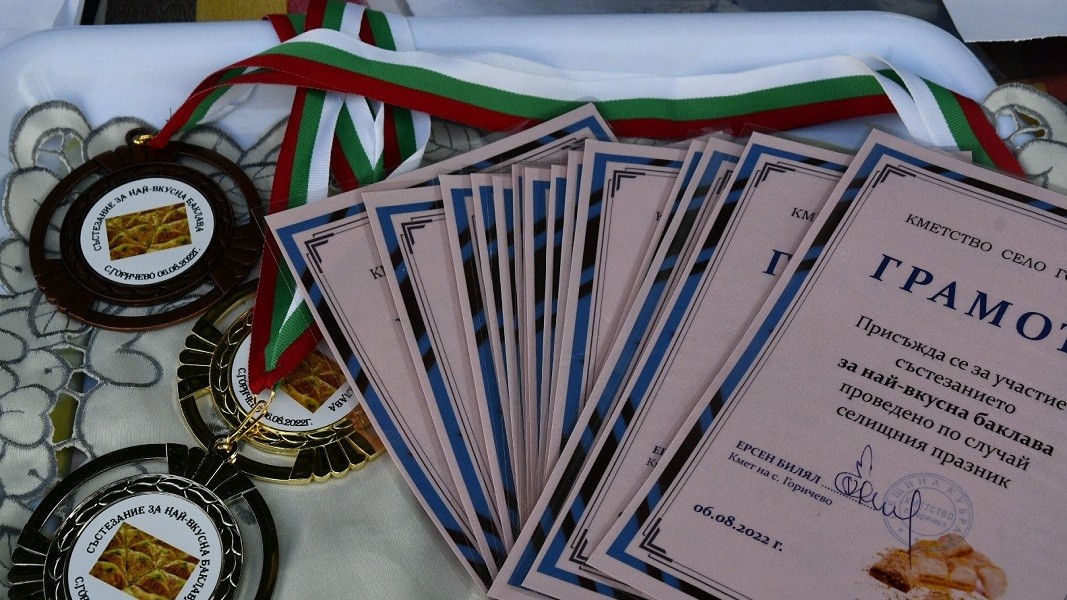"A nightingale's nest", "the finger of the vizier", "the lips of a beauty" - these are some of the poetic names of the different types of baklava that one can try today in Turkey. And despite the lack of definitive historical evidence that it is Bulgaria’s south-eastern neighbour that is the birthplace of the syrupy dessert, it is undoubtedly during the Ottoman Empire that it gained the greatest fame and spread from Asia Minor through the Balkans, Iraq all the way to North Africa.
Baklava is not only a delight for the palate, it is part of the cultural identity and memory of a number of Balkan countries, including Bulgaria.
This culinary page of history takes us back to the 8th century BC, when the people in Mesopotamia used to prepare a dessert of pastry dough with honey and crushed nuts, baked in an oven. Greek merchants in antiquity brought it to the Eastern Mediterranean, from where it later entered Roman cuisine. The journey through time and ethnicity has diversified the taste of the dessert, and today it can be found in a variety of combinations and flavours. The Armenians, for example, were the first to add cinnamon and cloves, and in Arab countries they sprinkle baklava with rose water and cardamom.
In Bulgaria, baklava is a mandatory part of the Christmas table in every home. Here the traditional dessert is made with coarsely chopped walnuts and lots of cinnamon.

And so that we have time to learn its intricacies in the height of summer, the village of Gorichevo in Kubrat municipality, for the tenth year in a row, hosted Bulgaria’s only culinary contest for the tastiest baklava. It is organized on the day of the village holiday, August 6, and this year a delegation from Subasi Municipality in Turkey, headed by Mayor Turan Canbay, were special guests and also members of the jury in the unique culinary competition.
After a precise assessment of the appearance, taste, baking, syruping and serving, 68-year-old Asie Nasufova was awarded a gold medal and the title of "Baklava Master 2022" (the silver went to Zineb Beitulova, and the bronze to Turkyan Ibryam).

This is the 4th participation in the competition for Asie, who has worked as a chef in the city of Ruse for 35 years. After her retirement, she returned to her native village of Gorichevo and since then she never misses an opportunity to test her skills in the competition, which, according to her, is a real feast for the locals.

She knows the recipe with which she won her dream title from her mother. She says that there is no fantasy in the preparation of the dessert. There are strict rules that you have to follow in order to achieve the true traditional taste, and the most important are the proportions for the dough.
"The dough is buttery, which is prepared at home. When it is mixed, it is left to rest for about 15 minutes, as we say. It is then made into balls and rolled out. The most important moment is when the filo pastry sheets are rolled out, to sprinkle them with a mixture of flour and wheat starch, which slightly dries the dough and allows thin sheets to be rolled out. After that, they are left on a sheet to dry slightly and only then the imagination is involved depending on how you want to fold and decorate the baklava. For the filling, I use walnuts, chopped more coarsely, so that their taste can be felt. The finished dessert is dried in the oven for two hours at a temperature of 50 to 100 degrees. The baking itself takes about 15 minutes and before you take the baklava out, you spread it with butter", Asie Nasufova says, explaining the subtleties.
For the topping, one can prepare a classic sweet syrup of water and sugar in a ratio of 1 to 1, which is important not to become too thick, the master baklava maker explains. The cold baklava is poured with warm syrup and left for at least five hours to absorb the liquid before we are allowed to taste it.
Bon appétit!
Compiled by Vesela Krasteva (based on an interview of Hristina Dimitrova from BNR-Radio Shumen)
English version Rositsa Petkova
Photos: Facebook / Municipality of KubratOn April 13, when Bulgaria celebrates for the first time the International Plant Appreciation Day, the Botanical Garden of the Bulgarian Academy of Sciences opens its doors for the 23rd edition of "Spring Encounters with Plants", the organizers..
In 1979, Bulgaria became the third country in the world, after the Soviet Union and the US, to have created space food. “We had everything – fruit, vegetables, soup and all kinds of sweets. When you are up there you don’t feel you have left the Earth,..
Romania bans gambling venues in small towns and villages The Romanian parliament passed a law banning gambling venues in towns and villages with population of less than to 15,000 residents, Digi24 reported. This is a compromise to the..
Autism spectrum disorders are growing exponentially around the world. Bulgaria is no exception. While more than a decade ago, one in 10,000 children..
You tell me what you have on your table so I can tell you what you are celebrating. This is a joking way of looking at the Bulgarian calendar of holidays..
The 10 main risks are facing the country in the coming decade, shows a national expert study entitled "Ten years, ten risks for Bulgaria" , BTA reports...

+359 2 9336 661
